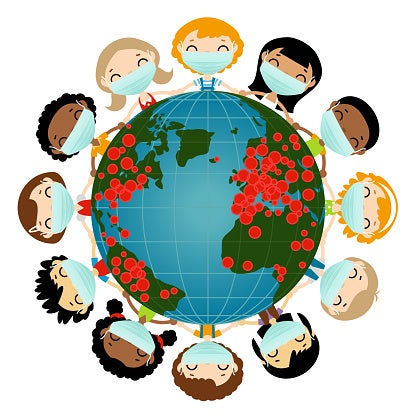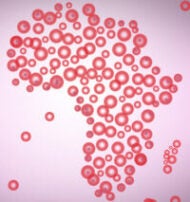Working Groups & Findings
Under the leadership of Chair, Professor Rose Leke of the University of Yaoundé and co-Chair, Professor Dyann Wirth of Harvard University, three Working Groups were organized to achieve the goal and objectives of the “Rethinking Malaria in the Context of COVID–19” global engagement. In addition to establishing regular meetings with Working Groups and an External Advisory Committee, Leke and Wirth convened a small Steering Committee to track progress, provide input, and plan public webinars. This group included Pedro Alonso, then Director of WHO’s GMP; Professor Michael Reich, Emeritus at the Harvard Chan; and Alastair Robb, Senior Advisor to the WHO/GMP; and Carmen Mejia, Executive Director, Harvard’s Defeating Malaria Initiative.
As part of the yearlong global engagement, Working Groups consulted with over 200 global stakeholders—focusing on those working on the front lines and those most affected by the disease—to consider malaria challenges and opportunities in the context of COVID–19 in Africa. Guiding questions across the Working Group included, but were not limited to: (1) Who is deciding? (e.g., global financing decision-making); (2) How do we more effectively—and more equitably—deliver services universally (everyone, but not everything)? and (3) What is the current and necessary capacity to solve problems at the country level?
As part of this “Rethinking Malaria” effort, the WHO’s Global Malaria Programme coordinated a regional consultative process in June 2021, which also began with the continent with the highest burden of malaria.
Findings from the “Rethinking Malaria in the Context of COVID–19” global engagement are available via Harvard’s central, open-access research repository (here with links to individual papers below) and published in PLOS Global Public Health.
- Malaria Governance Working Group #1
Co-Chairs: Professor Michael R. Reich and Dr Speciosa Wandira-Kazibwe
“Rethinking Governance of Malaria,” by Michael R. Reich and Speciosa Wandira-Kazibwe
“Malaria in the Governance of District Health Systems: Engaging Communities and Local Authorities,” by Nii Ayite Coleman
“Rethinking Malaria: Governance Lessons from Other Disease Programs,” by Kelechi Ohiri, Ifeyinwa Aniebo, and Olufunmilayo Akinlade
“Financing Malaria,” by Ravi Rannan-Eliya
“Decolonizing Malaria Governance,” by Jesse B. Bump and Ifeyinwa Aniebo
“Rethinking Communications for Governance of Malaria Programs,” by Jimmy Opigo and Anya L. Guyer
- Integrated Service Delivery for Malaria Working Group #2 (including R&D and private sector engagement)
Co-Chairs: Professors Evelyn Ansah and Corrina Moucheraud
“Rethinking Integrated Service Delivery for Malaria,” by Evelyn Ansah and Corrina Moucheraud
- Training and Capacity Building for Malaria Working Group #3
Co-Chairs: Professors Marcia Castro, Núria Casamitjana, Friday Okonofua, and Marcel Tanner
“Rethinking Malaria Control and Elimination in Africa: Reflections on Ways to Accelerate Progress and Sustain Gains,” by Fredros Okumu, Margaret Gyapong, Núria Casamitjana, Marcia Castro, Maurice Itoe, Friday Okonofua, and Marcel Tanner
“Rethinking Human Resources and Capacity Building Needs for Malaria Control and Elimination in Africa,” by Halima Mwenesi, Charles Mbogo, Núria Casamitjana, Marcia Castro, Maurice Itoe, Friday Okonofua, and Marcel Tanner


